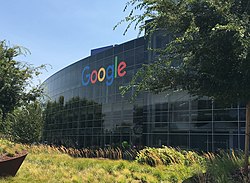How Does Google Make Money? Unraveling the Tech Giant's Business Model

We Google everything. Seriously, everything. From finding that obscure recipe to navigating rush hour traffic, Google is our go-to for, well, life. With over 8.5 billion searches daily – that's more than the world's population – it's clear Google holds a powerful grip on the internet. Even more surprising? Most of Google's services are completely free. So how does a company that seemingly gives everything away become a $2 trillion behemoth? Let's dive into the fascinating world of Google's business model.
From Humble Beginnings to Global Domination
Believe it or not, Google started as a simple college project in 1998. Larry Page and Sergey Brin, the masterminds behind it all, had a vision: to organize the world's information and make it accessible to everyone. Back then, Google was just a basic search engine, a far cry from the multi-faceted platform we know today.
Their first breakthrough came in 2000 with the introduction of AdWords, now known as Google Ads. This revolutionary system allowed businesses to pay for their ads to appear on Google's search result pages. Little did they know, this would become the cornerstone of their massive empire.
Over the years, Google's product portfolio exploded. Gmail, Google Maps, YouTube (originally a separate entity acquired by Google), Android, and Google Chrome – all these game-changers solidified Google's position as the king of the internet. But their path wasn't without its bumps.
Remember Google Plus, their attempt to rival Facebook? Or Google Hangouts, their foray into the world of chat apps? Both, along with a long list of other ventures, failed to gain traction. This highlights a crucial lesson – even giants stumble, and failure is often the breeding ground for future success.
The Money Maker: Unlocking the Power of "Free"
So, back to our original question – how does Google make money by giving so much away for free? It boils down to two key strategies:
1. The Freemium Model: A Taste of Premium
Have you ever noticed how many services offer a basic, free version, but entice you with premium features at a price? This is the "freemium" model in action, and Google is a master at it.
Gmail offers a generous 15GB of free storage, but need more? Time to upgrade! YouTube bombards you with ads (which, by the way, generate revenue for creators like me), but a Premium subscription removes them entirely. This "try before you buy" approach is wildly successful, even though a large portion of users never opt for the paid version.
2. Data is King: The Fuel Behind Targeted Advertising
While you might not be paying directly for Google's services, you're paying with something equally valuable – your data. Every search you make, every video you watch, every email you send, paints a detailed picture of who you are and what you like. Google, in turn, leverages this data to fuel its highly targeted advertising machine.
Ever searched for a new pair of running shoes, only to be bombarded with ads for athletic wear later on? That's Google's data-driven advertising at work. By matching your profile with relevant advertisers, Google ensures that the ads you see are more likely to pique your interest.
This system is a win-win for everyone involved. Businesses reach their ideal customers, Google generates revenue, and users are presented with ads tailored to their interests (well, most of the time).
Challenges on the Horizon: Privacy Concerns and the Rise of AI
Despite its dominance, Google's advertising model isn't without its challenges. Growing privacy concerns and the emergence of powerful AI tools threaten to disrupt the very foundation of its success.
People are becoming increasingly wary of how much information Google collects. Recent news of Google paying a hefty fine for tracking user location even when disabled, further fuels these anxieties. As users become more privacy-conscious, Google's ability to gather data and personalize ads may be hindered.
However, the biggest threat might come from unexpected quarters – AI chatbots like ChatGPT. Unlike Google's ad-laden search results, ChatGPT provides direct, concise answers without distractions. This new way of accessing information could chip away at Google's search dominance, impacting its advertising revenue.
Google isn't sitting idly by, of course. Their own AI endeavors, like the highly anticipated Gemini, aim to compete head-on with ChatGPT. Only time will tell who will win the AI battle and ultimately shape the future of the internet.
The Future is Bright (and Competitive)
One thing's for sure – this constant innovation and competition between tech giants is ultimately beneficial for us, the users. As Google, Microsoft, and others strive to outdo each other, we reap the rewards through improved products and services. So next time you "Google" something, take a moment to appreciate the intricate business model that makes it all possible – a model built on the powerful combination of free services, data-driven advertising, and constant evolution.
Reference:
Watch a video to learn more about Google's Business Model



COMMENTS